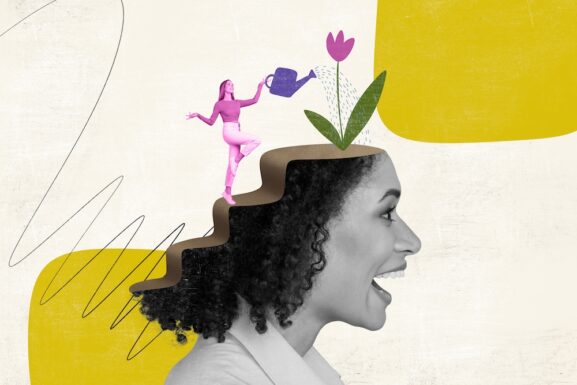TMS Or Ketamine: Which Is More Effective? Breaking Down The Two Alternative Treatments
Transcranial magnetic stimulation (TMS) and ketamine are two alternative treatments for a range of mental health conditions. But which is more effective, TMS therapy or ketamine? To answer this question, we have to examine the most up-to-date evidence on these treatments, as well as the practical differences between the two. But first, let’s provide a quick summary of what these two treatments involve.
Looking for ketamine therapy? Click here to find top rated ketamine clinics near you
Here are the Major Differences Between Ketamine and TMS Therapies
| Aspect | Ketamine Therapy | TMS Therapy |
|---|---|---|
| Legality | Legal in some countries for treatment-resistant depression, but regulations vary. | FDA-approved in the US for treatment-resistant depression and other conditions such as OCD and anxiety. |
| Effectiveness | Can be effective for treatment-resistant depression, showing rapid improvement in some patients. Short-term benefits observed. | Shown to be effective for many patients with depression, with benefits lasting for several months. Some long-term benefits. |
| Costs | Costs can vary widely depending on the country and specific treatment protocol, generally not covered by insurance. | Generally more expensive than traditional therapies, but often covered by insurance in the US for approved conditions. |
| Insurance Coverage | Coverage varies significantly by country and insurance provider; often not covered due to its off-label use for depression. | Widely covered by insurance in the US for FDA-approved conditions, with varying coverage for off-label uses. |
| Remission Rates | Varies by individual; some studies show significant improvement in depressive symptoms. | Varies by individual; some studies report about 30-50% of patients experience significant improvement. |
| Treatment Duration | Usually involves a series of injections or infusions over a few weeks. Each session lasts about 40-60 minutes. | Typically involves daily sessions for 4-6 weeks. Each session lasts about 30-60 minutes. |
| Side Effects | Can include dissociation, nausea, elevated blood pressure, and dizziness. Less commonly, urinary problems. | Common side effects include scalp discomfort and headache during treatment. Rarely, it can cause seizures. |
| Treatment Procedure | Administered intravenously or via nasal spray in a clinical setting under medical supervision. | Non-invasive procedure where magnetic coils are placed near the head to stimulate brain regions involved in mood regulation. |
| Target Conditions | Primarily used for treatment-resistant depression. Also being researched for chronic pain, PTSD, and anxiety disorders. | Approved for depression and OCD. Research ongoing for anxiety, PTSD, and stroke rehabilitation. |
The Verdict
So which is better: TMS or ketamine? Based on the above differences between the two treatments, this answer will depend on your priorities.
In terms of efficacy, ketamine has much more rapid effects compared to TMS, whereas the latter treatment seems to have longer-lasting benefits. For this reason, TMS may be better suited if you have chronic symptoms of depression. But if you are seeking fast-acting relief, especially if you have suicidal depression, then ketamine may be preferable over TMS since the benefits of the latter can take weeks to appear.
Practically, TMS will involve a greater commitment of your time compared to ketamine. But this may not be more costly if your insurance provider covers your TMS treatment. If you are looking for a mental health treatment without a psychedelic experience and side effects, then TMS is likely to be more appealing. Also, if you want to continue taking psychiatric medication during treatment, this is likely to be easier if you opt for TMS rather than ketamine.
It’s worth underscoring, however, that you don’t necessarily have to choose between ketamine and TMS. It’s possible to combine these treatments. And research has indicated that this combination is effective, reducing depressive symptoms in patients with treatment-resistant depression for two years. Of course, combining treatments can involve a greater commitment of time and money.
It’s best to consider together the research on these treatments, your personal preferences, and your individual circumstances. This will help you arrive at a decision that makes the most sense to you.
RELATED: Here’s What TMS Therapy Typically Costs
How Effective Is Ketamine Therapy?
Ketamine is effective at treating many mental disorders, particularly depression. Let’s highlight some of the most important research on ketamine therapy.
- A single infusion of ketamine leads to rapid and substantial antidepressant effects in patients with treatment-resistant depression.
- Ketamine can rapidly and profoundly reduce suicidality.
- Repeated infusions lead to greater antidepressant effects in patients with treatment-resistant depression compared to a single infusion.
- Ketamine can resolve treatment-resistant PTSD in the short term.
With ketamine, the above benefits are generally rapid and significant, with improvements in mental health persisting for up to two weeks.
Looking for ketamine therapy? Click here to find top rated ketamine clinics near you
How Effective Is TMS Therapy?
TMS is also effective at treating the above conditions, with some high-quality research providing the following results.
- rTMS leads to moderate improvements of symptoms for patients with major depressive disorder or treatment-resistant depression.
- rTMS leads to a significant decrease in suicidality in depressive patients.
- Through rTMS, patients with mild or moderate depression achieve remission from depression at a much higher rate than those with severe depression. This particular study, published in Frontiers in Psychiatry, also found that the total number of TMS sessions was not a predictor of remission.
- rTMS appears to significantly reduce the core symptoms of PTSD.
With TMS, patients notice results usually after two weeks. Meanwhile, the durability of the benefits depends on the particular condition. In the case of PTSD, for instance, research indicates improvements can last at least 2-4 weeks. However, when it comes to depression, most TMS patients feel better for many months after the end of treatment, with the average length of response being just over a year. Antidepressant effects are more likely to be sustained in depressive patients who are non-psychotic, treatment-resistant, less severely ill, and taking antidepressants after TMS therapy.
RELATED: rTMS vs. dTMS Therapy – The Key Difference
Differences Between Ketamine And TMS
There are also many crucial differences between ketamine therapy and TMS therapy, which may matter to you.
Length Of Treatment
Ketamine: Patients typically have 6-10 infusions.
TMS: Patients usually sign up for 30-36 sessions.
The Length Of Each Session
Ketamine: The session lasts around 60-75 minutes.
TMS: The session lasts 25 to 50 minutes.
How You Will Feel During The Treatment
Ketamine: At sub-anesthetic doses, this compound can cause a range of psychoactive effects, including dissociation, visual and auditory distortions, hallucinations, euphoria, confusion, and anxiety.
TMS: This treatment does not result in any psychoactive effects and during treatment, you are able to have a conversation and read as normal.
Insurance
Ketamine: Insurance will cover a portion of your treatment but not the entire infusion.
TMS: Insurance can cover your treatment.
RELATED: Ketamine Therapy vs. Antidepressants: What Are The Pros And Cons Of Each?
Continuing Your Current Medications
Ketamine: Some psychiatric medications interact with ketamine, so this may affect whether you are able to stay on your medication as you undergo ketamine therapy.
TMS: Medications are safe to use in combination with TMS. Many patients continue to take their antidepressants when beginning TMS therapy.



